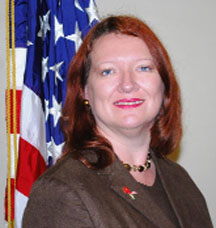Following the UK’s cancellation of a security reform programme here, the US, Canada and the EU agreed not to fill the gap until the Guyana Government agreed to policy and structural reforms, according to a cable dispatched to Washington by the US Embassy here.
In what was an inaugural fortnightly dispatch from the embassy to Washington, Charge d’Affaires of the US Embassy, Karen Williams on October 28th , 2009 referred to the UK’s withdrawal of security aid over the government’s refusal to fundamental reforms.
She adverted to an explanation of the withdrawal by Head of the Presidential Secretariat Dr Roger Luncheon which Williams later noted was not true.

She recounted: “Responding to a BBC Caribbean report on October 27,
Head of the Presidential Secretariat Dr. Roger Luncheon expressed regret but defended the GoG’s loss of a nearly USD 8 million security sector reform project, citing concerns about sovereignty and “ownership” of the project’s
management, but attributed cancellation to U.K. displeasure with the GoG denying permission for a British military live fire exercise. (Note: In reality, the live fire exercise was approved and already took place).”
In the aftermath of this fiasco, Williams said that the UK had said that the Guyana Government had resisted meaningful reforms throughout the two years of negotiations and was unwilling to compromise. She further related that the US, Canadian and EU missions had agreed not to fill the gap left by the British withdrawal “unless the GoG agrees to policy and structural reforms”.
Williams however said that the Inter-American Development Bank had initiated a substantial police training programme that largely gave the government what it wanted but without the institutional reforms.
She later commented: “This episode reinforces the GoG’s image as an unnecessarily difficult assistance partner prone to erratic rhetorical outbursts and rash judgments when firm and effective (and difficult to evade) conditionalities are attached.”









